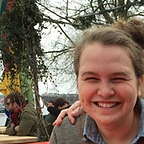Take 82: Thelma & Louise
I purposely saved Thelma & Louise for the end of this project and it’s one I have been looking forward to since I started. I grew up watching this movie, and can remember the feeling of my stomach dropping when I saw the final scene for the first time so many years ago. That moment is iconic, persisting in the cultural zeitgeist over decades, and is an essential part of American cinematic history. Of course, we can’t start there. We have to start at the beginning, which is when two best friends plan a trip to the mountains to blow off some steam and raise a little hell. What follows is sort of a coming of age story. When we first meet the duo, they seem trite - a hard working diner waitress who doesn’t take shit from the patrons and the long suffering wife of a used car salesman, who is a victim of emotional, and presumably physical, abuse. These are characters we’ve seen on screens hundreds of times, normally existing on the fringes of films, minor personalities spurring on the motives of more qualified protagonists. Ridley Scott puts them literally behind the wheel and the result is the sensation of us riding along in the back seat.
Many have compared this film to classic road trip movies — and in many ways it is that. The car itself is iconic, a robin’s egg blue Chevy convertible that the women drive through stunning desert vistas, with the top down and scarves in their hair. There is also much about this movie that is drawn from Bonnie and Clyde, or Easy Rider, or even Stagecoach. Like those other great films, this is a story about embracing transformation by way of fleeing from a haunting past. But unlike those other great films, this one is almost exclusively about women, following the duo from a parking lot where Thelma (Geena Davis) is nearly raped before she’s saved by Louise (Susan Sarandon), who shoots the assaulter in the chest. Importantly, she fires the shot not because he still posed an immediate threat but because she was overcome in a fit of rage and indignation at his brazen disrespect, an eruption of hatred and ire.
For a movie telling the story of murderous outlaws fleeing the arms of justice, it is surprisingly sweet, almost heartwarming, and funny. The film is directed by Ridley Scott and written by Callie Khouri (whom I just learned is married to T Bone Burnett!), and deftly captures the complexity and bond of female friendship in moments of crisis. This is often a theme between men in war movies, or gangster films, or cop procedurals. I’ve read some analysis of the film suggesting the relationship between Thelma and Louisa might be romantic in some way, but to me this film is a tribute to a type of purer love, a companionship with nothing transactional or obligatory about it. There were moments I was reminded of Abbi and Ilana from Broad City, or Laverne & Shirley. These are friendships that feel as essential to a person’s quality of life as a romantic partner, and when a creative team captures that connection it can feel transcendent.
There are so many one off lines I love throughout this movie, and Brad Pitt may hold the title for sexiest man in any scene of any movie during the motel night with Louise. The performances by Sarandon and Davis are spot on, and they clearly brought out the best in each other. It’s interesting to imagine the film being made with the other duos who were at different points tapped for the roles. Originally, the pair was cast with Michelle Pfiffer and Jodie Foster, which I imagine would have particularly amplified the lesbian undertones. Next it was supposed to be Meryl Streep and Goldie Hawn, which could have been incredible, but I also imagine might have tilted the balance between serious catharsis and humor to either, or both, extremes. Ultimately, I think the right women were cast in the roles and the academy nominated them both for Best Actress as a result.
The film was released in 1991, and it was interesting to watch in the wake of the #metoo movement. A key narrative point of the film is that they cannot go to the police because Thelma spent all night at the bar dancing with her assaulter and they know the story will be that she was “asking for it.” Louise is also a rape surivior herself, a truth revealed after the shooting. The moment in the parking lot is only the breaking point, and while it leads to desperation, we also see these two gain freedom and confidence to change their lives when they feel as if they have nothing to lose. They talk tougher, take what they want, and say fuck the rest. It’s impossible to watch this film and not root for the outlaws, but every notch in the plot should prepare us for the tragic ending that awaits them, even if we’ve never seen the film. Like Easy Rider and Bonnie and Clyde there is a cost that comes with unabashed freedom and these two seem happy to pay it. I won’t describe that final moment because it should be experienced, and what else could I add anyway? This is rightfully a scene in the pantheon of cinematic history and one that could only have achieved it’s full impact with the graceful escalation and transformation of two friends who have committed to loving and protecting each other, no matter the sacrifice required.
